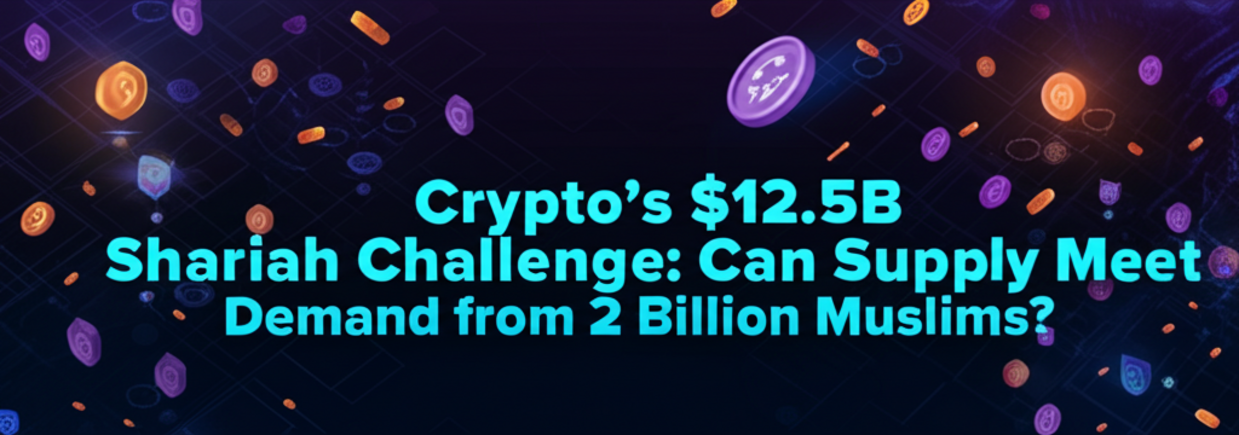Crypto’s $12.5B Shariah Challenge: Can Supply Meet Demand from 2 Billion Muslims?

The rapidly expanding Islamic finance market presents a significant opportunity for Shariah-compliant crypto, yet a gap persists between soaring demand and available offerings. As the sector targets $12.45 billion by 2028, serving the financial needs of nearly two billion Muslims requires overcoming key supply challenges.
Valued currently near $8 billion, the Islamic finance industry is on an impressive trajectory, forecast to hit $12.45 billion by 2028 with an 11.7% annual growth rate. This growth fuels interest in digital platforms adhering to core Islamic financial tenets, such as avoiding interest (riba), excessive uncertainty (gharar), and forbidden (haram) sectors.
Several pioneering projects are building ecosystems around DeFi and digital assets aligned with Islamic principles. HAQQ Network, reportedly the largest with $400 million secured and over 6 million users, features Islamic Coin, dedicating 10% of its issuance to charitable causes.
Other notable platforms include MRHB with its multi-product DeFi suite, Goldsand facilitating halal staking with $4.5 million in assets, and Sidra Chain, which has processed close to 13 million transactions for over 700,000 users.
Despite these advancements, a notable shortfall exists between the available Shariah-compliant crypto products and the burgeoning demand. This is especially pronounced among younger generations, with reports indicating 85% of Gen Z Muslims actively seek or use Islamic banking services.
[Graphic highlighting Shariah-compliant crypto demand and market growth]
Industry observers suggest that achieving scale hinges on clearer regulatory clarity and standardized frameworks for Shariah compliance. As the global Islamic finance market potentially swells towards $4 trillion, ethically aligned crypto innovations could play a crucial role, provided they can bridge the current supply gap effectively.
